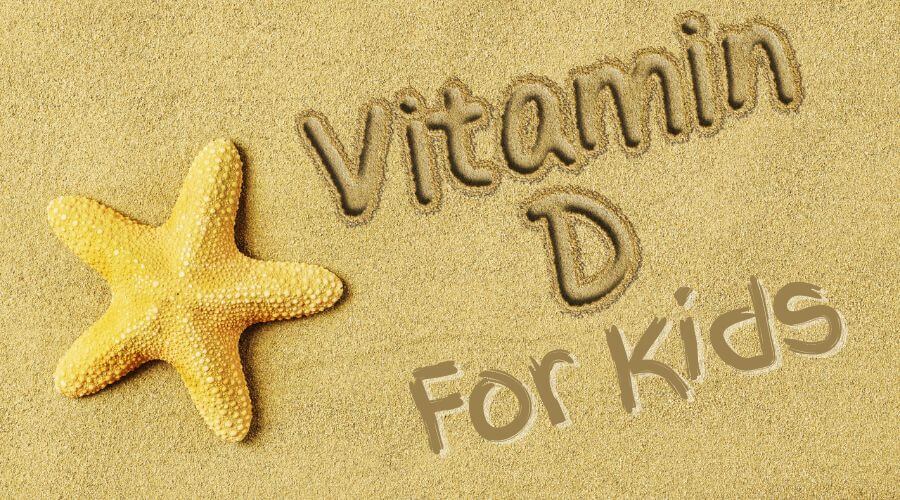Vitamin D is an important nutrient for our kids
Vitamin D is well known as a bone health nutrient and our ‘sun’ vitamin. However, we have learnt over the years that it plays an essential role in our children’s health, for everything from brain development and immune health to sleep and anxiety. This vitamin is now considered a pre-hormone because of its many hormone-like effects.
Let’s begin today by looking at Vitamin D and brain health for our kids.
Vitamin D and children’s brain health
This is a fascinating area of current research. Science has shown us that supplementing with Vitamin D has the potential to improve symptoms in children with both autism and ADHD. We also know through research that vitamin D is essential for mental health as well. Consistently lower levels of Vitamin D are found in patients with anxiety and depression.
In another study it was found that mothers of an autistic child, who then supplemented with Vitamin D, were less likely to have a subsequent child with autism. This is still an emerging area of research, but Vitamin D status is definitely to be considered for all growing brains.
Vitamin D and Children’s immune health
This is perhaps one of the areas in which Vitamin D is best known, alongside bone health. It’s believed many children are born deficient in Vitamin D, and that this may modulate their immunity, making them increasingly susceptible to frequent infections.
It’s also well known that a deficiency in Vitamin D is present in autoimmune conditions and may make children more susceptible to developing auto-immunity. Restoring Vitamin D to optimum levels rebalances the immune system and has also seen large reductions in the presence of autoimmune conditions and frequent infections in both children and adults.
As naturopaths, we consider Vitamin D a front-line defence nutrient for immunity in people of all ages. It helps protect our bodies against viruses and bacteria, as well as give protection against allergies, eczema, and intolerances. If your child has frequent infections or an auto-immune condition, it is well worth getting their vitamin D levels checked by your Naturopath.
Vitamin D and Children’s sleep
Interestingly, children with Vitamin D deficiency were found to have decreased sleep duration and poorer sleep efficiency. The same study also found that low Vitamin D status may upset circadian rhythms, and these children had delayed and later bedtimes.
Sleep is associated with a hormone called melatonin, and it is the production of this hormone that is affected by Vitamin D deficiency. We are getting a little sciency here, but before melatonin can be created, the brain must produce serotonin, which is our happy mood hormone. This means that a low level of Vitamin D can also cause mood disorders.
Let’s take a look now at how you can optimise your child’s Vitamin D levels naturally.

How to optimise children’s Vitamin D Status
There are several ways that you can safely and effectively boost the Vitamin D levels of your children.
Safe sun exposure
The optimal way of doing this is through safe sun exposure. Vitamin D is made when sunlight hits the skin and sets off a hormonal cascade. For this to occur efficiently, the skin needs to be naked and sunscreen free.
In Australia we have strong sunlight through the summer months, and so 10 minutes of sunlight on exposed skin (as much as possible) may be all that’s necessary. To avoid sunburn and damage, don’t do this during the hottest part of the day. In the morning before 10am, or late afternoons are the best times to expose naked skin to the sunlight.
During winter, the body needs longer to absorb the UVB rays and create Vitamin D. From 30 minutes to 1 hour is an ideal amount of time to enjoy sunlight on unprotected skin during winter.
Food
Vitamin D can also be absorbed through certain foods. Namely butter, eggs, organic liver, and oily fish. Grass-fed organic butter is the highest in vitamin D and good quality cod liver oil. We don’t tend to get heaps of Vitamin D this way, so combing this with sunlight exposure is recommended.
Supplements
Supplementation may also be appropriate, but you need to do this with the support of a practitioner to be certain you are getting the right type and dosage of Vitamin D for your child. Not all supplements are created equally; children need less Vitamin D than adults. Vitamin D is also fat-soluble, so the body does not handle it well when it is given too much.
In conclusion, the importance of Vitamin D for children’s health cannot be understated. I hope you found this information useful.
If you need further support to assess whether Vitamin D may be playing a part in your child’s health picture, please use the button below to book an appointment with me:
I look forward to supporting you and your child on your health journey,
Allison

